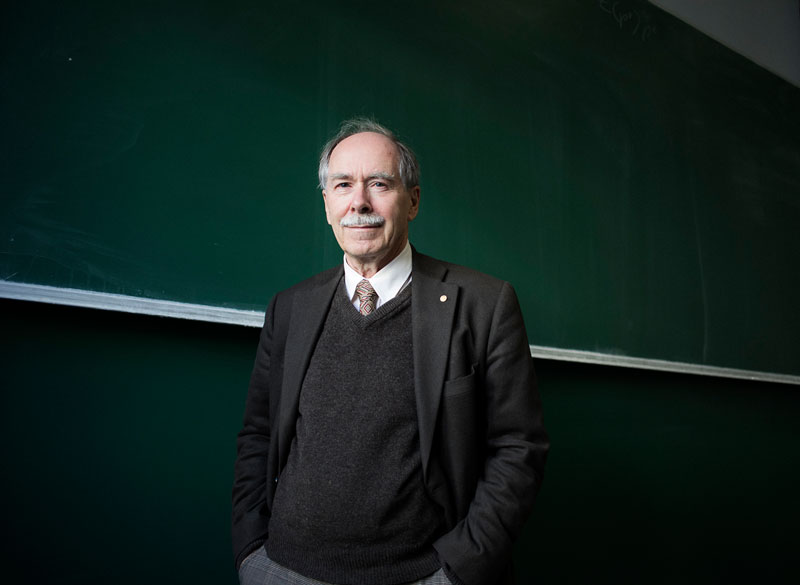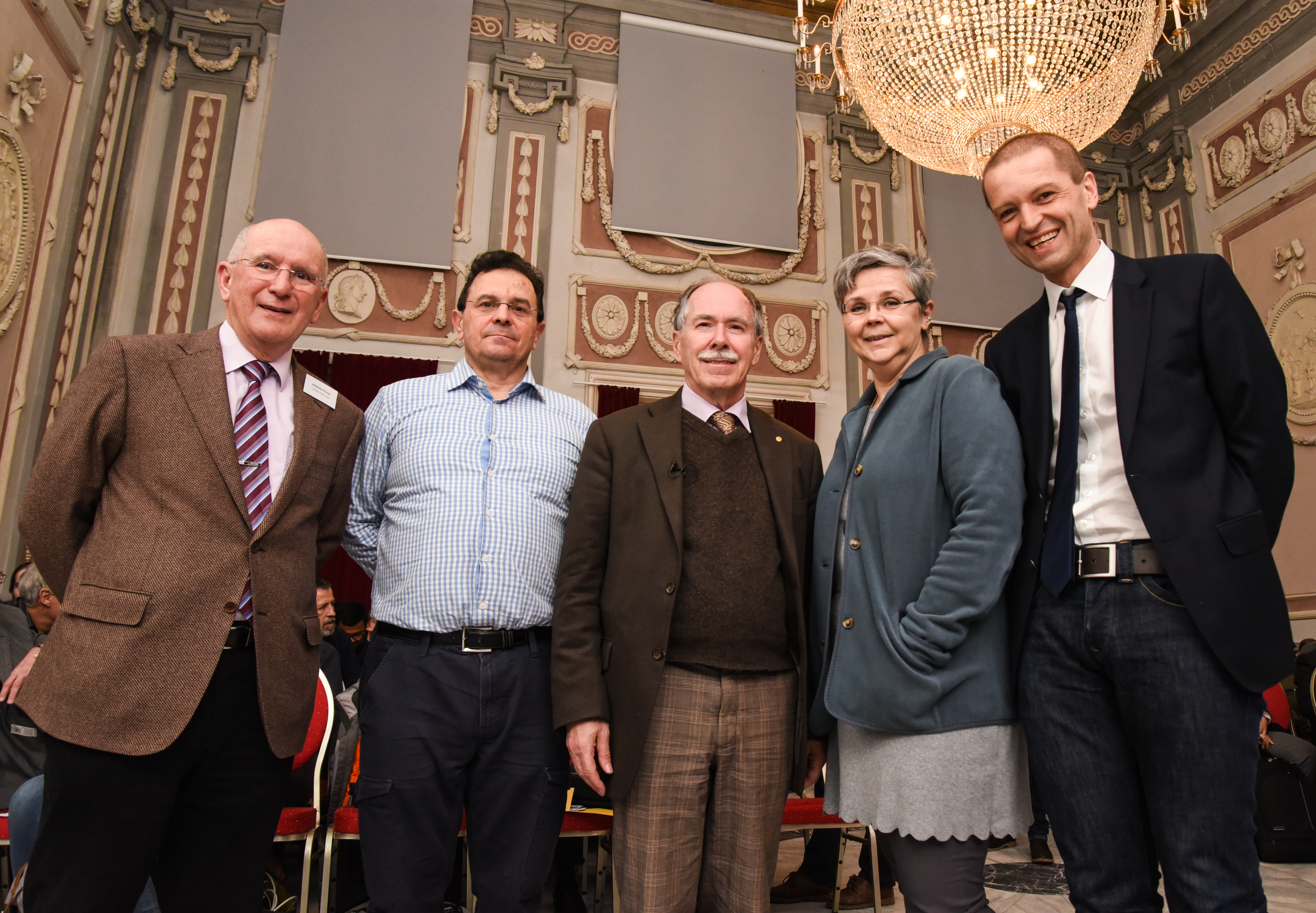Spitzenforschung macht die Universität Graz international sichtbar. Unsere WissenschafterInnen tragen mit ihrer Arbeit Entscheidendes dazu bei, die Gesellschaft von morgen zu gestalten. Ein sehr gutes Beispiel dafür ist das Doktoratskolleg (DK) „Hadronen im Vakuum, in Kernen und Sternen“. Exzellenter wissenschaftlicher Nachwuchs wurde in den vergangenen zwölf Jahren durch internationalen Austausch und Zugang zu aktuellen Forschungsergebnissen gefördert. Insgesamt investierten Wissenschaftsfonds FWF, Universität Graz und Land Steiermark 4,7 Millionen Euro in das erfolgreiche Projekt.
Die Bilanz kann sich sehen lassen: Immerhin waren bislang knapp 60 DissertantInnen aus 17 Nationen im Doktoratskolleg beschäftigt, 42 haben auf dem Gebiet der Teilchenphysik promoviert, drei davon sogar sub auspiciis, resümierte Univ.-Prof. Dr. Christoph Gattringer, Leiter des DK und Dekan der Naturwissenschaftlichen Fakultät, beim Festkolloquium am 27. Februar 2018 im Meerscheinschlössl. In den vergangenen Tagen traf sich die Teilchenphysik-Welt in Graz, in mehreren Workshops und rund 40 Vorträgen tauschen sich WissenschafterInnen aus. Den Auftakt zum Festkolloquium gab Robert Pisarski vom Brookhaven National Laboratory. Als „Highlight der Veranstaltung“ zog der niederländische Physiker Gerard `t Hooft (Universität Utrecht), der gemeinsam mit Martin Veltman 1999 den Nobelpreis für Physik bekommen hat, mit dem Vortrag „Schwarze Löcher und Quantenmechanik“ das (Fach-)Publikum in seinen Bann. Vizerektorin Renate Dworczak, die zu ihren Agenden auch die wissenschaftliche Lehr- und Forschungskooperation NAWI Graz zählt, begrüßte den Ehrengast und das Publikum im Namen der Universität.

